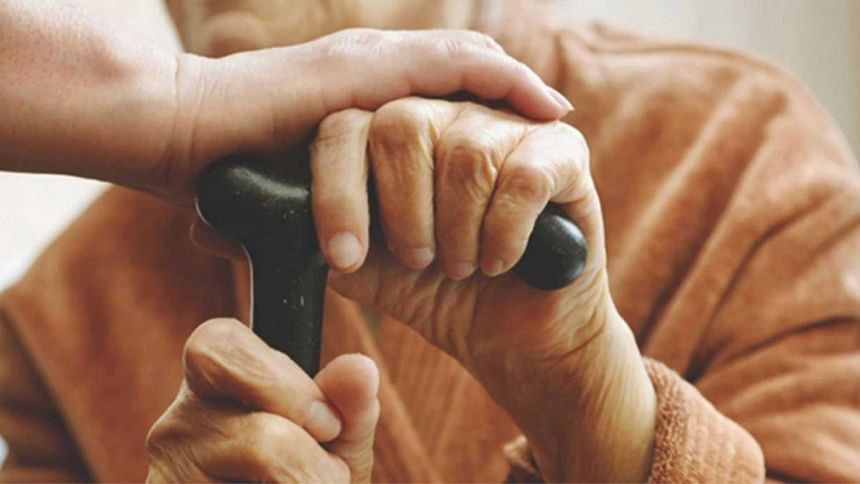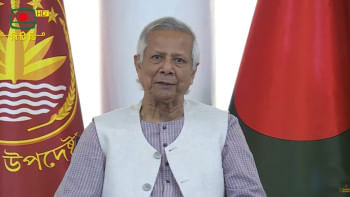Fear, loss and isolation

Humans are social creatures. While all animals have a need to communicate, none have quite the same ability or need to organise themselves into communities the way humans do. This ability, besides material needs, feeds off of the human being's need to belong, to feel connected. The need for connection is possibly as basic as food, shelter and clothing. An MIT study, published in November 2020, found that the region of our brains that makes us crave food is the same as that which makes us crave interactions, leading to the conclusion that connection is as important and as basic for humans as food.
Over the last couple of years, with the onset of the Covid-19 virus, we have been forced to think about just how important the need for connection is for us. With strict guidelines of maintaining six feet distance, touch has all but disappeared from a lot of our lives. And while we were being stripped of of this basic human need, the release of oxytocin, dopamine, and serotonin had been replaced by adrenaline released by the activation of the fear centres of our brain. Fear kicked in, in slow motion, activating a fight or flight response releasing adrenaline. In ancient humans, this rush of adrenaline could be channelled into running (away from potential threats), but here we were, modern day humans, stuck in our homes, unable to do little but let fear slowly engulf us. The fear of loss—loss of life, loss of a loved one, loss of freedom, loss of security and loss of connection.
A cross sectional study on the impact of the pandemic on mental health among the general Bangladeshi population (Das, Hasan, Daria, Islam, 2020) found the prevalence of loneliness to be a staggering 71 percent. Other issues reported in the study included depression, anxiety and sleep disturbance. Although chronic loneliness itself is categorised as a mental illness, studies have also found a direct correlation between loneliness and other psychological disorders such as depressive disorders, anxiety disorders and other types of personality disorders. The same study reports that amongst the elderly, loneliness is associated with more than two fold risk of dementia, since it is related to the loss of cognition in old age. In fact, some authors have signalled it as prodromal stage of dementia. When someone suffers from loneliness, they experience a more rapid decline in global cognition, semantic memory, perceptual speed, and visuospatial ability.
The World Health Organization (WHO) has rightly identified the increased demand for mental health services. Bereavement, isolation, loss of income and fear are triggering mental health conditions or aggravating existing ones. As a result of the pandemic, many people may be undergoing increased levels of drug use, insomnia, and anxiety. Meanwhile, Covid-19 itself can lead to neurological and mental complications, such as delirium, agitation, and stroke.
I suppose, one positive outcome of the pandemic is that the need for mental health services has been brought to the forefront. WHO has previously highlighted the chronic underfunding of mental health related programmes. Prior to the pandemic, countries were spending less than two percent of their national health budgets on mental health, and struggling to meet their populations' needs. In Bangladesh, the last revision of the mental health plan was done in 2006. While the mental health plan is incorporated into the policy, strategy and action plan for surveillance and prevention of non-communicable diseases (NCD) as well as the strategy and work plan for community based activities in mental health in Bangladesh, it was only last year that some of the goals identified in the last mental health plan were reached.
This, I suspect, occurred due to the pandemic forcing us to acknowledge the importance of our mental well-being. With the onset of the pandemic, what used to be an issue that was surrounded by silence and stigma, has slowly taken the spotlight as a result of growing awareness. Service providers have emerged with innovative solutions such as affordable, tele counselling provided by homegrown, often non-profit, organisations.
There is a gap, however. The services as well as the advocacy around mental health are mostly targeted towards the youth. While, at the beginning of the pandemic, there was an understanding of how the physical health aspect of Covid disproportionately affects the elderly, the same has not been true for the mental health aspect. There may be reasons for this—i.e. multiple studies showing that older adults may be less negatively affected by mental health outcomes than other age groups, the elderly reportedly have better coping skills, etc. What remains a fact, at least for our part of the world, is that the elderly have obviously suffered more from the loss of connection. While the youth have had technology to keep them connected, the elderly who relied on neighbourly visits and hugs from their children and grandchildren, have felt a definite adverse effect on their sense of well-being.
Additionally, while the youth have been able to teach themselves to talk about mental health without fear of stigma or repercussion, the same is hardly true for older people. They are far less likely to ask for professional help if they suffer from feelings of loneliness or depression. And since they are unwilling and unlikely to rely on professional help, without technological access to help them, they are likely to suffer in silence, further eroding their physical health. This, then, has a compound effect owing to the downside of connection; that as we connect, we feel responsible for those we connect with. The younger ones then, suffer from feelings of guilt, shame, and inadequacy, as a result of an inability to care for older people, once again leading to anxiety and depressive disorders.
I don't necessarily have a solution to the problem. I do have an acute awareness of one fact, though. Connection is important, and connection is important for most humans. And maybe in our quest to build healthier societies, we should consider taking an inclusive approach to the elderly as well.
Shagufe Hossain is a freelance consultant and the founder of Leaping Boundaries.

 For all latest news, follow The Daily Star's Google News channel.
For all latest news, follow The Daily Star's Google News channel. 



Comments